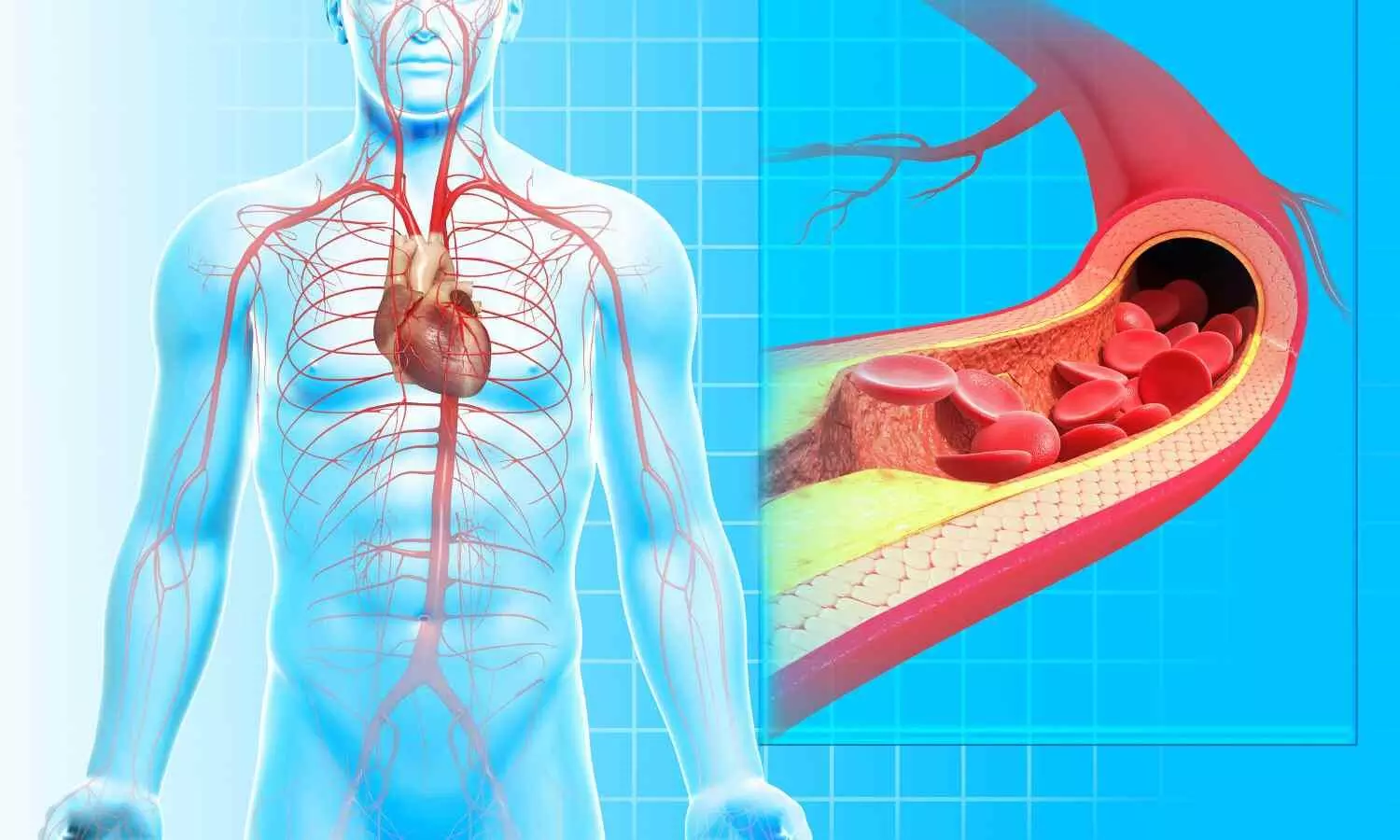Drug-coated devices do not improve outcomes in patients with peripheral artery disease: ESC Study
- byDoctor News Daily Team
- 09 September, 2025
- 0 Comments
- 0 Mins

Madrid: Drug-coated stents and balloons were not associated with reduced risk of amputation or improved quality of life compared with uncoated devices in two trials inperipheral artery disease(PAD), according to late-breaking research presented in a Hot Line session today at ESC Congress 2025. Explaining the rationale for the trials, Principal Co-Investigator, Professor Joakim Nordanstig from the University of Gothenburg, Sweden, said: “Drug-coated balloons and stents have been shown to reduce restenosis and the need for reinterventions in the endovascular treatment of PAD. However, there are uncertainties regarding whether drug-coated devices improve outcomes that are meaningful to patients, quality of life and reducing amputations, and there are some concerns over safety. We investigated these and other endpoints in two trials in PAD – one in chronic limb-threatening ischaemia and one in intermittent claudication – comparing drug-coated and uncoated devices.” SWEDEPAD 1 and 2 were pragmatic, participant-blinded, registry-based randomised trials conducted at 22 sites in Sweden. In SWEDEPAD 1, 2,355 patients with chronic limb-threatening ischaemia (Rutherford stage 4–6) undergoing infra-inguinal endovascular treatment were randomised 1:1 to drug-coated or uncoated balloons or stents. In nearly all of the drug-coated devices implanted, the drug delivered was paclitaxel (>99%). There was no significant difference in the primary endpoint of time to ipsilateral above-ankle amputation with drug-coated vs. uncoated devices (hazard ratio [HR] 1.05; 95% confidence interval [CI] 0.87 to 1.27) over 5 years of follow-up. Target vessel reinterventions were reduced in the drug-coated group during the first year (HR 0.81; 95% CI 0.66 to 0.98), but this difference disappeared with longer follow-up. There was no difference in all-cause mortality or in quality of life (as assessed using the VascuQoL-6 questionnaire). In SWEDEPAD 2, 1,155 patients with intermittent claudication (Rutherford stage 1–3) undergoing infra-inguinal endovascular treatment were randomised 1:1 after successful guidewire crossing to receive either drug-coated or uncoated balloons or stents. All drug-coated devices implanted delivered paclitaxel. There was no difference in the primary efficacy endpoint of quality of life between the drug-coated and uncoated groups at 12 months (mean difference in VascuQoL-6 scores: –0.02; 95% CI –0.66 to 0.62). Target vessel reintervention rates were not different at 1 year or over a median follow-up of 6.2 years. All-cause mortality did not differ over 7.1 years (HR 1.18; 95% CI 0.94 to 1.48), although higher 5-year mortality was noted with drug-coated vs. uncoated devices (HR 1.47; 95% CI 1.09 to 1.98). Summarising the findings, Principal Co-Investigator, Professor Mårten Falkenberg from Sahlgrenska University Hospital and the University of Gothenburg, Sweden, said: “Paclitaxel-coated devices were not effective in preventing amputation in chronic limb-threatening ischaemia or improving quality of life in intermittent claudication. Given the signal of increased mortality with intermittent claudication, clinicians should carefully evaluate the potential risks and benefits when considering these expensive devices. Devices incorporating antiproliferative agents other than paclitaxel warrant further investigation in PAD.”
Disclaimer: This website is designed for healthcare professionals and serves solely for informational purposes.
The content provided should not be interpreted as medical advice, diagnosis, treatment recommendations, prescriptions, or endorsements of specific medical practices. It is not a replacement for professional medical consultation or the expertise of a licensed healthcare provider.
Given the ever-evolving nature of medical science, we strive to keep our information accurate and up to date. However, we do not guarantee the completeness or accuracy of the content.
If you come across any inconsistencies, please reach out to us at
admin@doctornewsdaily.com.
We do not support or endorse medical opinions, treatments, or recommendations that contradict the advice of qualified healthcare professionals.
By using this website, you agree to our
Terms of Use,
Privacy Policy, and
Advertisement Policy.
For further details, please review our
Full Disclaimer.
Recent News
Gum disease could silently cause serious brain dam...
- 03 November, 2025
Can Early-Day Fasting Significantly Boost Metaboli...
- 03 November, 2025
Delhi HC bars doctor from running medical centre d...
- 03 November, 2025
Daily Newsletter
Get all the top stories from Blogs to keep track.


0 Comments
Post a comment
No comments yet. Be the first to comment!